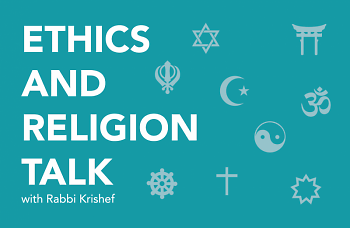Rev. Salvatore Sapienza, the Senior Pastor at Douglas Congregational United Church of Christ in Saugatuck/Douglas, responds:
Like many Christian churches around the world, our church follows the Revised Common Lectionary, a collection of assigned readings from the Bible which are scheduled on a three-year cycle.
I love knowing that each and every Sunday Christian churches around the world are focusing on the very same Scripture readings. Though we come for many different denominations, we are connected through this common and uniform practice. I think there’s a great power in that collective consciousness.
The weekly Scripture readings from both the Old and New Testaments follow the liturgical calendar and are often grouped together by theme, making the Common Lectionary a very helpful resource for our church musicians and worship teams in their planning and preparing.
At our church, we also share a link to the lectionary readings in our weekly email newsletter, so that congregants can read, study, and pray with the Bible readings in preparation for Sunday worship.
As a church pastor, I am extremely grateful to have these assigned readings serve as the inspiration and guide in my sermon writing and planning. Rather than dictating the theme for each Sunday’s service, I allow Spirit to do Her work in me and through me.
As I research and meditate on the selected passages throughout the week, I am often surprised at what arises and astounded at the relevance of these ancient readings on our lives today; a reminder for us all that “the Word of God is active and alive” (Hebrews 4:12).
Father Kevin Niehoff, O.P., a Dominican priest who serves as Judicial Vicar, Diocese of Grand Rapids, responds:
The Roman Catholic Church has a three-year cycle of Sunday readings in its Lectionary, commonly known as Years A, B, and C. These cycles focus on the Gospels of Matthew, Mark, and Luke, respectively. The weekday Lectionary cycle of readings is two-year, commonly known as Years 1 and 2.
The Dominicans, of which I am a member, have an indult for didactic preaching. This form of preaching is for teaching the readings of a given day. Each Dominican will develop an individual style of preaching. The goal is to reflect on the scripture reading of the day, a weekday, a Sunday, or a Solemnity like Christmas or Easter and relate them to present-day circumstances. Then, the people gathered to pray together will learn how to continue to live virtuous lives and, hopefully, avoid evil.
Linda Knieriemen, Senior Pastor at First Presbyterian Church in Holland, responds:
My denomination recommends the Revised Common Lectionary. A reading from the psalms, the Hebrew scriptures, the Christian gospels and the Christian letters are all included in this three year cycle. Preachers choose one or try to link all four together. Such a prescribed cycle brings benefits: a wide swath of scripture is heard over three years. Wherever one travels, the same lessons will be read. And, for some pastors, they don’t have this think about what to preach/teach next Sunday… it’s set out for them three years out! The drawback to the lectionary is that even with four readings, over three years of Sundays, significant sections of scripture are not heard.
In my most recent pastorate I chose not to use the lectionary for my worship planning. A planned liturgical journey has integrity, however, so I planned a year out, usually offering a series of 4-6 sermons on a particular topic: the life of Abraham and Sarah, psalms of lament, the Jesus’ parables, the beatitudes. This allowed me to delve deeper into some subjects or to address particular cultural issues relevant to my congregants. This was not a perfect system either but it fit my style and my congregation’s flavor.
Although not adhering strictly to the lectionary selections, during the festivals to the church year such as Advent/Christmas, Lent/Easter I did draw on the traditional readings for the season.
My response:
Jewish tradition has divided the first five books of the Bible (Genesis through Deuteronomy) into weekly sections in order to completely read the entire Torah each year. Many traditional, non-Orthodox, congregations read a third of this weekly portion each year over the course of three years so they read the entire Torah every three years. And Reform congregations might read a selection from the weekly reading, but typically do not systematically try to read every word of the entire Torah in one year or three. There is also a selection from the prophetic section of the Bible assigned to each weekly reading and each special holiday reading. Some rabbis always start with the Biblical passage and draw a lesson from it; other rabbis construct their sermon around what is happening in the world and may try to connect it with something in the weekly reading.
Come back next week for more responses.
This column answers questions of Ethics and Religion by submitting them to a multi-faith panel of spiritual leaders in the Grand Rapids area. We’d love to hear about the ordinary ethical questions that come up in the course of your day as well as any questions of religion that you’ve wondered about. Tell us how you resolved an ethical dilemma and see how members of the Ethics and Religion Talk panel would have handled the same situation. Please send your questions to [email protected].
The Rapidian, a program of the 501(c)3 nonprofit Community Media Center, relies on the community’s support to help cover the cost of training reporters and publishing content.
We need your help.
If each of our readers and content creators who values this community platform help support its creation and maintenance, The Rapidian can continue to educate and facilitate a conversation around issues for years to come.
Please support The Rapidian and make a contribution today.
